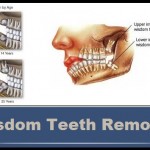Common Symptoms of Depression
Depression more than an illness, is a state of mind. Rather a disease that can inflict one in ten adults in their lifetime; depression takes various forms in various people. Very commonly dismissed as “it is in your head”, depression can be a very debilitating condition. Research has shown that depression is caused by the chemical imbalances that occur in the human brain. Each patient would experience systems that are unique to the individual. Genetics plays a great role in the occurrence of the disease so also factors like difficult life conditions, stress, grief, certain medical conditions and changes in hormonal levels. These commonly occurring causes primarily alter the brain chemistry, thus could possibly trigger depressive states. The tolerance of people to the factors listed above varies with each individual, thus it is not possible to say with certainty that all people undergoing life changes also experience symptoms of depression.
Depression can be found in men and women of all ages, differing social backgrounds and with different educational levels. It does seriously affect the functioning of an individual in all spheres of life, such as careers, friendships, finances, parenting, marriage- no part of life is left untouched in some way or the other. Even with the best of treatments, there is a fair chance of remission of the condition at a later stage in life. Like Early Pregnancy Symptoms, the symptoms of depression would combine with other diseases like diabetes, cardiovascular diseases or stroke, to make treatment and containment of the situation really difficult. To make matters worse, the condition is accompanied by substance abuse or anxiety. Rarely is depression diagnosed at the very onset. It is only when the symptoms of depression get acute that people, including trained health care personnel notice the condition. It comes as a relief that if diagnosed at the very onset, depression can be treated and brought within manageable levels.
Elucidated below are the most common symptoms that point to depression. Most times a patient is inflicted with more than just one symptom. Thus an assessment is to be done by a trained medical professional and no home cures are to be applied.
Fatigue: This is the general feeling of tiredness or low energy condition that the patient complains of. It is more of a desire to remain inactive rather than anything else. This could also be caused by a dysfunctional thyroid and must be carefully handled. Many medications do cause fatigue as a residual effect. Thus a trained professional is to be consulted to ascertain the underlying causes to the fatigue.
Insomnia: Consistently occurring sleeplessness or lack of proper sleep must be investigated into. Effort must be taken to differentiate insomnia caused by other reasons than symptoms of depression. It could also be the side effect of treatments for other ailments. Often the sleepless conditions could throw up suicidal thoughts. Thus this condition is not to be taken lightly and the patient must be referred to a qualified professional for further action.
Indifference: This can also be described as a loss of interest in matters. The loss of interest could be seen in being well groomed to reading the daily newspapers. It could lead to absenteeism from work and result in lower productivity. Depression could lead to more interpersonal changes to lack of job satisfaction at work place.
Anxiety: Anxiety is a major red flag for a depressive patient. This could also point to a serious infliction that needs major intervention. Patients with anxiety are more likely to experience a relapse and takes longer periods of time to respond to medication. If a patient is not responding to the first level treatment to anxiety, then this could point to an anxiety disorder and could possibly complicate treatment and recovery.
Suicidal thoughts: It is very common that depression patients also struggle with thoughts of suicide. Studies have noticed that 90% of suicides are by patients suffering from depression or more serious health disorder. More than thoughts of harming oneself, the suicidal thoughts tend to emphasize the benefits that occur to the friends and family of the patient if the person is dead. This is a serious condition and must be handled by trained professionals at the very onset. The immediate family of the patient must be instructed on the early symptoms of depression that point to such conditions.
Substance abuse: Alcohol or other substance abuse, principally tobacco, tends to prolong the treatment required for the depression. The ever dependence on substances is also a clear sign pointing to depression. This is often a mask by the patient to cover up the mental condition of the patient.
Chronic pains: Most patients of depression complain of pains in various parts of the body. Most times they are present only in the minds of the patient. But nevertheless, if a person is complaining of pains, it must be investigated to find if it is genuine or not. Persistently occurring false alarms do tend to be a symptoms of depression.
Appetite: Significant loss or an excess appetite must set the alarm bells ringing. This could well be a sign that the person is suffering from depression. Here if the patient is under medication, that the appetite is not due to the medication at hand must be ascertained. Most medications for depression, do also tend to increase appetite.
Modern day treatment of depression does indeed alleviate most symptoms of depression. Requiring minimal hospitalization, the patient can in most cases lead a fruitful life. Though at times there is a relapse of the symptoms, this can be managed by suitable medication. A congenial atmosphere that tends to take into account the special need of the depressive patient does indeed help in the speedy recovery and its management. Many a condition can be controlled by just making changes in the lifestyle.




